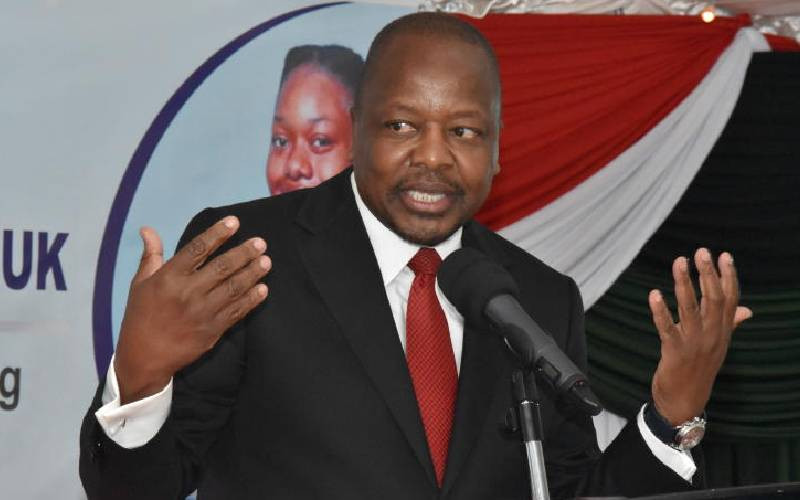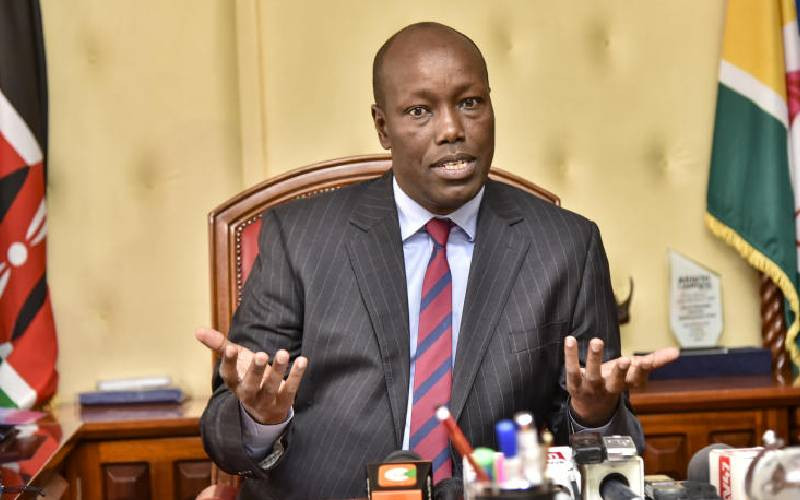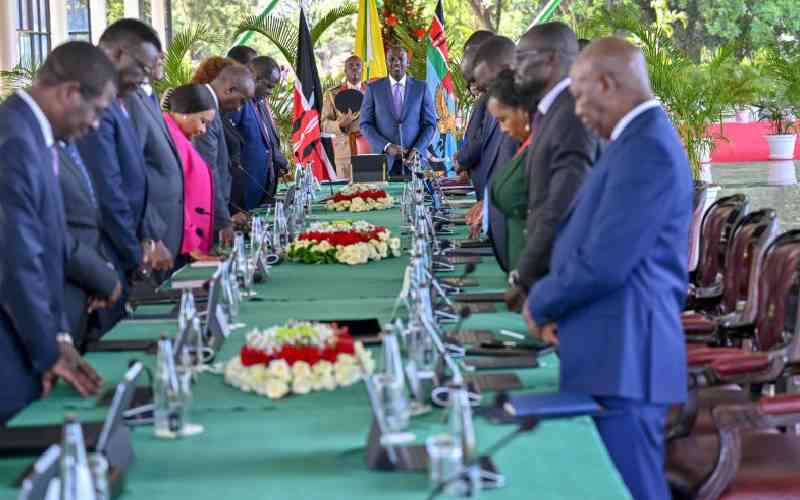A team of media experts from the Deutsche Welle Akademie led by the Media Development Division’s senior adviser for Africa, Mr. Charles Achaye on Friday, held talks on corruption in the media industry at Maseno University.
The communication students in attendance identified names commonly used to brand corruption in the country as; 'chai', 'sabuni ya macho', facilitation fee, and 'kitu Kidogo'.
It emerged that corruption has slowly found its way into the media industry, which apparently the public believes exposes corrupt individuals.
Accompanying the DW team were Luke Anami, of the Standard Group, Ms Atieno Otieno and Mr. Fred Mariwa both DWA alumni currently based in Kisumu.
Luke Anami opened the floor by sharing his experiences about corruption in the media with the students.
"The only way to curb this problem of corruption is by the journalists adhering to the code of conduct for the practice of journalism, stick to your principles. If a story is of a sensitive topic, make sure you get your facts right, counter check the facts by calling the relevant sources, get more facts from relevant authorities for further confirmation and getting the necessary documents as supporting evidence," he said
He said journalists such as Mohammed Ali seeking the parliamentary leadership can make journalism safe and convenient as the laws governing the journalism profession are made by the parliamentarians.
Kenyan media houses depend on the government as the main advertiser contributes to the growth of corruption in the industry as there are likelihoods of seeking influence on content.
"Corruption in Germany does not entail brown envelopes. Instead, journalist are taken to very expensive trips, they're offered dinner invitations, tickets for music events and sports events. In this case these forms of corruption look more of a sincere nice gesture than a bribe,"
"Regulatory boards in Germany are very strict as anyone found guilty of corruption ends up losing their jobs and end up behind bars," said Juta vom Hofe, the DW Akademie Coordinator for Kenya.
She said that freedom of expression in Germany is highly respected. The press operates independently with little or no government interference.
She explained that most media houses have bodies that do self-regulations. Journalists criticize the government's activities and expenditure. However there are some boundaries for instance when the security of the nation is involved.
In the Kenyan setting, Mr. Fred Mariwa said that journalists working in media houses owned by politicians do not daily sing and dance to the tunes of the politicians.
According to him, some do a good job as required by the journalism profession.
Ms Atieno Otieno added that journalists face challenges both in the newsroom and in the field. She said female journalists are targets as most politicians and editors would take advantage of them by asking for sex in return for giving a story and getting a story published.
Stay informed. Subscribe to our newsletter
Ms Atieno added that some journalists could even demand for money from politicians in order to package the story in his or her favor.
The team urged the students to be the champions of corruption free media content as a way of treating this deadly disease passed from generation to generation.
In cases where journalists pay their sources in order to get information, Mr. Odong posed these questions,
“Does a journalist's gift to a source color the story? Does the source give the story as it is or they are being influenced by the kind gesture expressed by the journalist?”
Mr Odong said there are many stories that one would deal with urging the training journalists to grow a clean career.
He said everything could have been fake if the unimaginable, having every story published on newspaper or aired paid for by someone.
 The Standard Group Plc is a
multi-media organization with investments in media platforms spanning newspaper
print operations, television, radio broadcasting, digital and online services. The
Standard Group is recognized as a leading multi-media house in Kenya with a key
influence in matters of national and international interest.
The Standard Group Plc is a
multi-media organization with investments in media platforms spanning newspaper
print operations, television, radio broadcasting, digital and online services. The
Standard Group is recognized as a leading multi-media house in Kenya with a key
influence in matters of national and international interest.
 The Standard Group Plc is a
multi-media organization with investments in media platforms spanning newspaper
print operations, television, radio broadcasting, digital and online services. The
Standard Group is recognized as a leading multi-media house in Kenya with a key
influence in matters of national and international interest.
The Standard Group Plc is a
multi-media organization with investments in media platforms spanning newspaper
print operations, television, radio broadcasting, digital and online services. The
Standard Group is recognized as a leading multi-media house in Kenya with a key
influence in matters of national and international interest.








